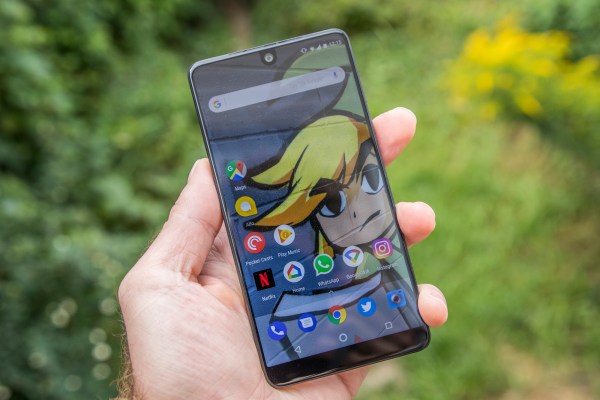Essential knew it had a hard road ahead of it. Andy Rubin and company acknowledged as much when they launched a handset aimed at taking on the likes of Apple and Samsung. Given that the company hasn’t issued anything in the way of official numbers thus far, a new batch of numbers from IDC are the best we have to go on at the moment — and things don’t look great for the product’s first half-year.
A tweet posted by research director Francisco Jeronimo puts the company’s total shipping at 88,000 units for 2017. We reached out to Essential about the report, but the company wouldn’t comment as is its policy with outside reports.
When I spoke to the company’s president and COO Niccolo de Masi the day the phone was launched, he called the handset a “long-term play,” speaking in terms of a decade’s worth of development to reach the heights of the big names.
Of course, he also framed things relative to the first Google Pixel, noting that the handset was a bomb compared to Apple and Samsung — though that phone’s reported sales number was around 2.5 million.
“We will effectively run a similar growth trajectory probably to what you saw with Apple’s approach to the iPhone,” he added at the time. “They sold a million in the first year. Not because there wasn’t demand for more, but because they couldn’t build more than that when it came to capacitive touch-resistant screens.”
If those were, indeed, the benchmarks for the company’s planned first year of sales, 88,000 is a drop in the bucket. And even with the long runway, the company afforded itself being tied to the man who invented Android, it’s hard to imagine investors being thrilled by this sort of estimate.
Essential hasn’t talked numbers yet — no surprise, really for a young company. But early reports were low, a fact seemingly confirmed by the company’s decision to slash prices in October. At the time, Darrell called the phone “the best deal in smartphones,” but a $200 drop soon after launch wasn’t exactly a vote of confidence in the brand.
“We could have created a massive TV campaign to capture your attention,” the company wrote at the time of the drop, “but we think making it easier for people to get their hands on our first products is a better way to get to know us.” The notion of cutting out advertising in order to pass the savings along to the consumer is a noble one, but word of mouth isn’t exactly a reliable launch pad for a mainstream consumer product.
The company confirmed a total of $330 million back in August, which should give it wiggle room, especially given the importance the company’s executives place on couching expectations early on. It’s easy to forget that Android got off to a pretty slow start as well, given how wildly successful the mobile operating system has become.
Aside from some software updates, however, things have been pretty quiet on the Essential front. The company’s Hub smart home device has been largely MIA since it was first announced alongside the phone.
